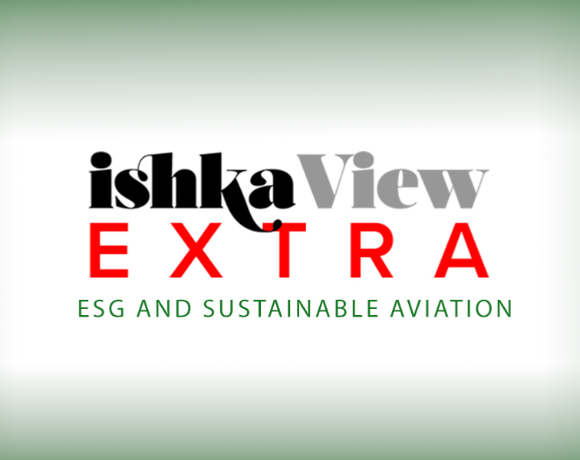The report examines developments during September 2023 and October 2023. For any questions and feedback on the report, please email eduardo@ishkaglobal.com
The EU legislative process for the approval of ReFuelEU Aviation – the critical decarbonisation initiative that will mandate escalating SAF blending ratios in the EU – reached its final stage on 9th October with its approval by the Council of the EU. The new regulation is expected to be published in the EU’s official journal at any moment and will enter into force the twentieth day after this publication.
ReFuelEU Aviation shall apply from 1st January 2024. However, articles 4, 5, 6, 8, and 10 (relating to the SAF mandate) shall apply from 1st January 2025, when fuel suppliers will be required to blend at least 2% SAF in jet fuel sold at ‘Union Airports’ – airports where passenger traffic was higher than 800,000 passengers or where the freight traffic was higher than 100,000 tonnes in the previous reporting period, and which are not situated in outermost regions. SAF will need to be “green” (excluding feed and food crop-based feedstocks), and its blended share will increase (including sub-targets for e-kerosene) every five years: 6% in 2030, 20% in 2035, 34% in 2040, 42% in 2045, and 70% in 2050. An EU label for the environmental performance of flights will also be introduced in 2025.
The finalisation of ReFuelEU Aviation followed a vote of overwhelmingly approval at the European Parliament on 13th September. A press conference on the legislation hosted by the European Parliament the day before its approval can be watched here (questions by journalists included the risk of fraudulent feedstock imports and whether the scarce e-fuels available should be limited to aviation). MEP Jose Ramon Bauza (chief rapporteur for the law) also announced prior to the vote that in 2027 the European Parliament will evaluate its performance. “Rest assured, we will request the European Commission to adopt any extraordinary measure necessary if SAF prices remain a barrier for its economic and efficient use,” Bauza told parliament (link in Spanish).
Some good reflections on the process leading to its approval are available in this Euractiv article published in early October.
Linkages drawn to upcoming ICAO CAAF/3 conference
The five leading European aviation associations welcomed the adoption of ReFuelEU Aviation and called on the November 2023 ICAO Conference on Aviation Alternative Fuels (CAAF/3) to follow its example and deliver the right global “milestones” and “targets” for SAF adoption – for more details on A4E’s position ahead of CAAF/3, see the SAF section below. In parallel, ICAO via its Uniting Aviation publication shared the analysis by one of the five European associations, marking the “significant milestone” of ReFuelEU Aviation’s adoption.
Those interested in following CAAF/3 conference taking place on 20th to 24th November in Dubai can do so by registering for free access to ICAO TV. Ahead of the conference, the local airline association – the Arab Air Carriers' Organization (AACO) – also called on a series of tweets for ICAO to encourage government to adopt policies to incentivise the use of SAF.
The reaction by industry and stakeholders
NGO Transport & Environment commended cross-partisan support for the legislation but warned that at current growth rates the renewable energy requirements to deliver on the SAF mandates would be “immense.”
SAF production forecasts shared during Argus SAF Focus Day in London – attended by Ishka – on 11th October by Argus and SkyNRG suggested the EU’s SAF mandate will be achievable this decade but there will be production shortfalls from 2030 (when the blending ratio jumps from 2% to 6%) unless more projected production facilities reach FID in the near-term. Weeks earlier, Lufthansa CEO Carsten Spohr also cast doubts over whether the SAF mandate could be met. "From today's point of view, it won't work to have even the availability of the quantities that are demanded of us, not to mention the high costs that in the end the passenger will have to bear," Spohr said in a briefing with reporters according to Reuters.
Repsol’s SVP of Global Aviation, Oliver Fernandez, commented at the event that further clarifications from the European Commission on the practical implementation of ReFuelEU Aviation would be needed “in a short period of time.”
Separately, a presentation by Italian oil and gas firm Eni in September also delivered a few useful projections on worldwide SAF capacity for the next few years, including a comprehensive map of SAF policy initiatives (slides 19 to 25).
More to come: SAF support in the NZIA
The European Parliament’s Industry, Research and Energy committee on 25th October adopted the Net-Zero Industry Act (NZIA), an initiative to bolster climate tech investment tabled by the European Commission earlier this year. The NZIA, which is broadly seen as a response to the US Inflation Reduction Act (IRA), will now include support for “nuclear fission and fusion technologies, SAF, and specific industrial technologies” following amendments by committee members. According to Euractiv, technologies covered by the law will be eligible to receive faster permits and looser state aid oversight from EU competition authorities. The legislation will now be put to a vote by the full House during the 20th to 23rd November plenary session, paving the way for the EU Parliament and Council (which is yet to adopt its position) to begin final negotiations.



